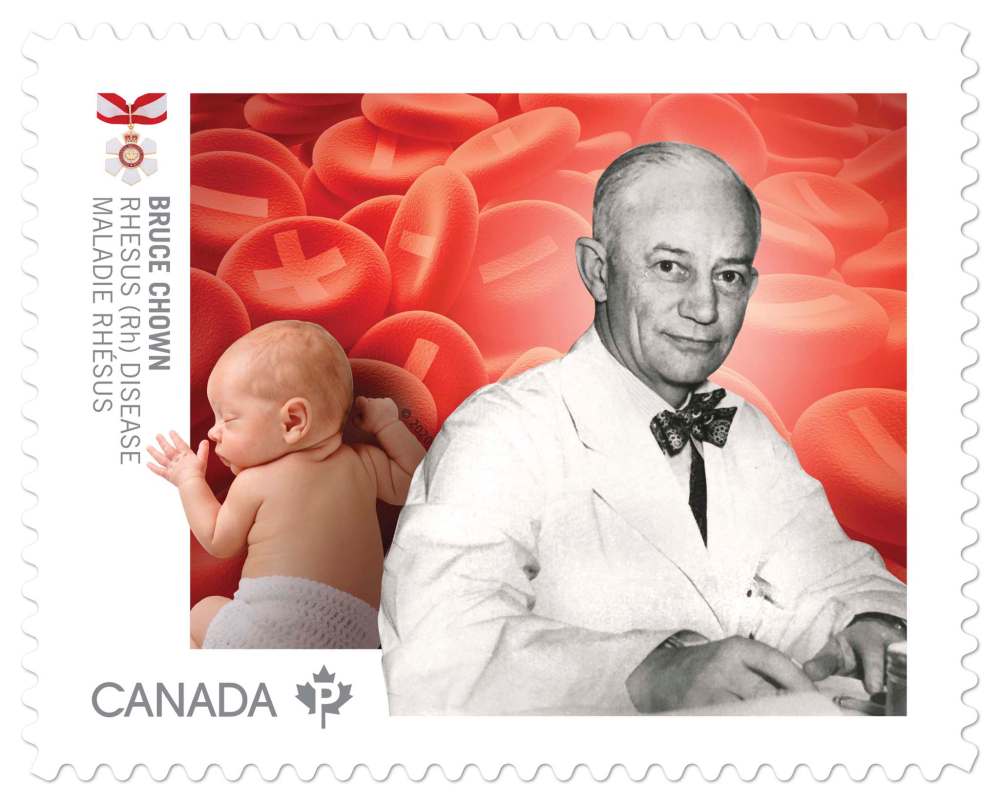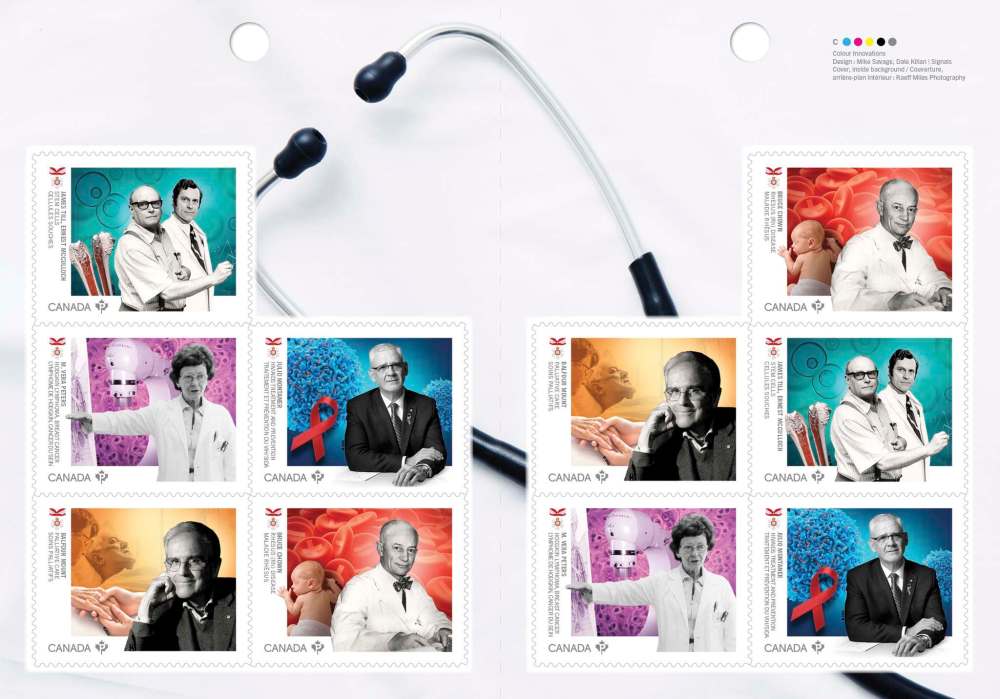New stamp honours Manitoba medical pioneer
Advertisement
Read this article for free:
or
Already have an account? Log in here »
To continue reading, please subscribe:
Monthly Digital Subscription
$1 per week for 24 weeks*
- Enjoy unlimited reading on winnipegfreepress.com
- Read the E-Edition, our digital replica newspaper
- Access News Break, our award-winning app
- Play interactive puzzles
*Billed as $4.00 plus GST every four weeks. After 24 weeks, price increases to the regular rate of $19.95 plus GST every four weeks. Offer available to new and qualified returning subscribers only. Cancel any time.
Monthly Digital Subscription
$4.99/week*
- Enjoy unlimited reading on winnipegfreepress.com
- Read the E-Edition, our digital replica newspaper
- Access News Break, our award-winning app
- Play interactive puzzles
*Billed as $19.95 plus GST every four weeks. Cancel any time.
To continue reading, please subscribe:
Add Free Press access to your Brandon Sun subscription for only an additional
$1 for the first 4 weeks*
*Your next subscription payment will increase by $1.00 and you will be charged $16.99 plus GST for four weeks. After four weeks, your payment will increase to $23.99 plus GST every four weeks.
Read unlimited articles for free today:
or
Already have an account? Log in here »
Hey there, time traveller!
This article was published 15/09/2020 (1987 days ago), so information in it may no longer be current.
One of Manitoba’s most revolutionary medical professionals is being memorialized by Canada Post.
A set of five commemorative stamps announced this week honour six Canadian physicians and researchers, among them Winnipeg-born Dr. Bruce Chown.
Chown is best known for his work in producing a treatment for the once-widespread and deadly Rh disease, which occurs when the Rh blood types of a mother and child are not compatible. The treatment was administered to mothers during pregnancy and after delivery of the baby.

Chown was born in Winnipeg in 1893. He attended the University of Manitoba, graduated from medical school in 1922, and later returned to be a professor and head of the department of pediatrics. A bust of his likeness sits at the Innovation Plaza on the U of M campus.
“The fact that he is clustered with folks who’ve made huge contributions to HIV and cancer care, the discovery of stem cells, tells you what a giant of a presence he had in the Canadian medical community,” U of M Rady Faculty of Health Sciences and Max Rady College of Medicine dean Dr. Brian Postl said.
In 1967, Chown was made an officer of the Order of Canada and was inducted posthumously into the Canadian Medical Hall of Fame in 1995. He died in Victoria in 1986.
Hematologist and researcher at Princess Margaret Cancer Centre in Toronto, Dr. Jean Wang, who also sits on Canada Post’s stamp advisory committee, first brought up the possibility of the collection in spring 2018, with the intention of recognizing influential Canadian medical professionals who may not be instantly recognizable to the general public.
“I thought it would be cool to have something to mark some of the really amazing achievements that Canadian researchers and physicians have made where their stories are not really well known,” she said.
Wang’s decision to suggest including Chown in the collection came from his key role in understanding Rh disease, his work in producing the treatment, and his devotion to personal care when working with patients. Wang recalled a story she had learned during her research where, after introducing a method of providing blood transfusions to newborns with Rh disease to Winnipeg, Chown would respond to calls in the middle of the night from hospitals and perform the transfusions himself.
“He really made an impact on a lot of families, just through his direct care, but then ultimately a huge, huge impact through his research and the clinical trials,” she said. “It’s a really amazing story.”

Also honoured in the stamp series are: Dr. Julio Montaner (HIV/AIDS research); Dr. Balfour Mount (palliative care); Dr. M. Vera Peters (Hodgkin lymphoma, breast cancer); Dr. James Till and Dr. Ernest McCulloch (stem cell science).
malak.abas@freepress.mb.ca
Twitter: malakabas_

Malak Abas is a city reporter at the Free Press. Born and raised in Winnipeg’s North End, she led the campus paper at the University of Manitoba before joining the Free Press in 2020. Read more about Malak.
Every piece of reporting Malak produces is reviewed by an editing team before it is posted online or published in print — part of the Free Press‘s tradition, since 1872, of producing reliable independent journalism. Read more about Free Press’s history and mandate, and learn how our newsroom operates.
Our newsroom depends on a growing audience of readers to power our journalism. If you are not a paid reader, please consider becoming a subscriber.
Our newsroom depends on its audience of readers to power our journalism. Thank you for your support.


